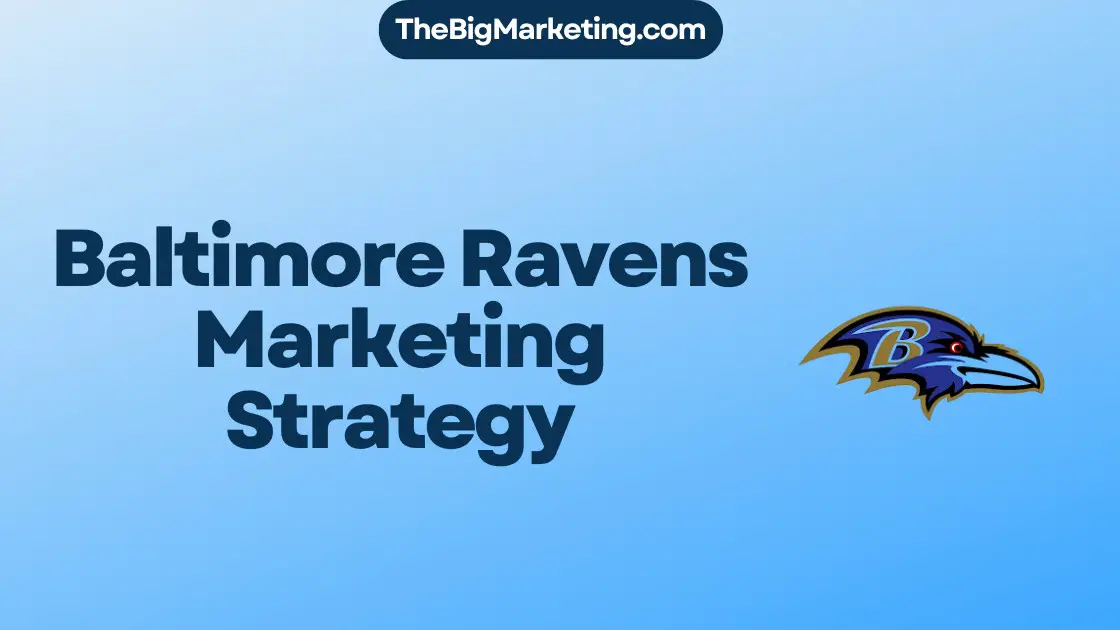CSR marketing, or corporate social responsibility marketing, refers to the strategic approach that businesses take to contribute to society while also achieving their own goals. It involves activities that create shared value for both the business and society. CSR marketing allows companies to showcase their socially responsible initiatives and connect with customers who align with their values. This concept has evolved from being seen as mere charity to incorporating initiatives that deliver business results.
The United Nations Industrial Development Organization defines CSR as achieving a balance between economic, social, and environmental imperatives while meeting the expectations of shareholders and stakeholders. Today, many companies in various industries are incorporating CSR practices to make a positive impact on the world and enhance their brand value.
Key Takeaways:
- CSR marketing is a strategic approach that allows businesses to contribute to society while achieving their goals.
- It involves activities that create shared value for both the business and society.
- CSR marketing has evolved from being seen as mere charity to incorporating initiatives that deliver business results.
- Many companies in various industries are incorporating CSR practices to enhance their brand value.
- CSR marketing allows companies to connect with customers who align with their values.
The Importance of Social Responsibility in Marketing
Social responsibility in marketing plays a vital role in helping businesses align with the values and expectations of their stakeholders. Incorporating CSR initiatives into marketing strategies allows companies to effectively communicate their mission and values to their target audience, creating a strong and meaningful connection. But why is social responsibility in marketing so important?
Benefits of CSR Marketing
Implementing a well-rounded CSR campaign brings numerous benefits to companies, including:
- Attracting new customers and employees: Consumers and job seekers are drawn to companies that demonstrate a commitment to social responsibility. By showcasing CSR efforts, companies can attract like-minded individuals who are more likely to engage and support the brand.
- Fostering trust and strengthening brand equity: Social responsibility initiatives build credibility and trust among consumers. When companies actively contribute to society, they enhance their brand reputation, making it more resilient and reliable in the eyes of customers.
- Increasing customer loyalty: By aligning with social causes and values, companies potentially connect with customers on a deeper level. When customers perceive a shared purpose with a company, their loyalty towards the brand increases, resulting in repeat purchases and advocacy.
- Differentiating from competitors: In an increasingly competitive market, CSR marketing offers a unique opportunity for brands to stand out. By showcasing their commitment to social responsibility, companies differentiate themselves from competitors, attracting customers who prioritize supporting socially responsible businesses.
- Building a positive reputation: CSR marketing allows companies to address queries about their activities and values, showcasing transparency and integrity. It demonstrates that the company operates with the best interests of society in mind, leading to a positive reputation and enhanced brand perception.
Overall, implementing a successful CSR marketing strategy can significantly impact the growth and success of an eLearning business.
Social responsibility in marketing helps businesses align with the values and expectations of their stakeholders, attracts new customers and employees, fosters trust, strengthens brand equity, increases customer loyalty, differentiates companies from competitors, and builds a positive reputation.
How CSR Promotes Sustainable Business for eLearning Companies
Corporate Social Responsibility Marketing (CSR Marketing) is a powerful approach that eLearning companies can leverage to promote sustainable and responsible business practices. By integrating CSR strategies into their operations, these companies can generate positive publicity, enhance their reputation, and build strong brand loyalty.
One of the key benefits of CSR Marketing is its ability to attract customers who are increasingly interested in supporting socially responsible companies. Many consumers are willing to pay a premium for products and services from brands that demonstrate a commitment to social causes. By aligning CSR initiatives with the values and causes important to customers, eLearning companies can significantly enhance customer appeal and encourage brand loyalty.
In addition to attracting customers, prioritizing CSR can also help eLearning companies attract and retain top talent. As employees become increasingly conscious of corporate responsibility practices, they seek companies that align with their values. By promoting CSR initiatives, eLearning companies can create a positive work environment and attract employees who are passionate about making a difference.
Furthermore, CSR efforts can have a positive impact on the bottom line and contribute to long-term business growth. By adopting sustainable business practices, eLearning companies can reduce costs, improve efficiency, and enhance their reputation in the market. In a time when consumers and investors are looking for companies that prioritize sustainability and social responsibility, embracing CSR can create a competitive advantage and position eLearning companies as leaders in their industry.
| Benefits of CSR Marketing for eLearning Companies |
|---|
| 1. Generating positive publicity |
| 2. Enhancing reputation and brand loyalty |
| 3. Attracting socially conscious customers |
| 4. Attracting and retaining top talent |
| 5. Improving bottom line and long-term business growth |
In conclusion, CSR Marketing offers eLearning companies the opportunity to promote sustainable business practices, attract socially conscious customers, and create a positive impact in society. By integrating CSR into their operations and effectively communicating their initiatives, eLearning companies can build a strong brand reputation and drive long-term success.
The Role of Marketing in Social Responsibility
Marketing plays a crucial role in promoting and communicating a company’s social responsibility initiatives. It serves as a powerful tool to raise awareness and share the positive impact a company is making on society. Through effective marketing strategies, companies can differentiate themselves from competitors, attract like-minded customers, and build a strong brand image.
Marketing allows companies to showcase their commitment to social responsibility and emphasize their values. By incorporating CSR messaging into their campaigns, companies can instill trust and loyalty among customers. When customers see a company actively addressing social and environmental issues, they feel connected and are more likely to support the brand.
Furthermore, marketing plays a critical role in educating consumers about the importance of CSR. Through engaging and informative campaigns, companies can highlight the benefits of making conscious purchasing decisions and how their choices can contribute to positive change. By effectively communicating the value of CSR, marketing can drive awareness and motivate customers to align themselves with socially responsible brands.
One of the most significant contributions of marketing in the realm of social responsibility is the ability to drive positive change in society. Marketing campaigns have the power to inspire individuals, create social movements, and mobilize collective action. Through compelling storytelling and relatable narratives, companies can encourage their target audience to take part in social and environmental initiatives.
To exemplify the role of marketing in social responsibility, consider the following case study:
| Company | CSR Marketing Campaign |
|---|---|
| The Body Shop | Enrich Not Exploit™ |
| H&M | Conscious Collection |
| Starbucks | Starbucks Global Farmer Fund |
In the Enrich Not Exploit™ campaign, The Body Shop marketed its commitment to using sustainably sourced ingredients and promoting fair trade. This campaign allowed the company to attract customers who prioritize ethical and sustainable products. Similarly, H&M’s Conscious Collection marketing campaign focused on promoting sustainable fashion and its recycling program. By highlighting their efforts, H&M was able to differentiate itself as a socially responsible brand and appeal to eco-conscious consumers. Starbucks’ Global Farmer Fund campaign showcased the company’s support for coffee farmers by investing in programs to improve their livelihoods. The marketing efforts helped build trust and loyalty among Starbucks customers who value ethical sourcing and fair compensation.
Through these examples, it is evident that marketing plays a pivotal role in driving social responsibility. It enables companies to communicate their commitment, inspire action, and foster positive change in society.
Examples of Successful CSR Marketing Campaigns
Many companies have successfully implemented CSR marketing campaigns to promote their brand and make a positive impact on society. Here are five examples of CSR marketing campaigns done right:
-
TOMS
The “One for One” campaign, where for every pair of shoes sold, TOMS donates a pair to a child in need.
-
IKEA
The company’s commitment to sustainability and environmentally friendly practices, including a recycling program and a focus on renewable energy.
-
Ben and Jerry’s
The ice cream brand’s support for various charitable causes, including animal welfare and social justice initiatives.
-
Lush
The cosmetics company’s emphasis on ethical sourcing, environmentally friendly packaging, and recycling programs.
-
Patagonia
The outdoor apparel brand’s dedication to fair labor practices, sustainability, and its common practice of donating a portion of profits to environmental causes.
These examples demonstrate how CSR marketing can create positive brand associations and attract socially conscious consumers.
The Relationship Between CSR and Company Reputation
CSR initiatives have a profound impact on a company’s reputation. When companies engage in socially responsible practices and effectively communicate them through marketing efforts, they can build a positive brand image and enhance their reputation among customers, shareholders, and stakeholders. CSR demonstrates a company’s commitment to ethical behavior and its dedication to contributing to societal well-being, showcasing integrity and responsible business practices.
One of the key impacts of CSR marketing on a company’s reputation is the establishment of trust and loyalty among customers. When customers see a company actively engaging in initiatives that benefit society, they are more likely to trust and support the brand. This trust can lead to increased customer loyalty and advocacy, as customers appreciate the company’s efforts to make a positive impact on the world.
Furthermore, CSR initiatives can improve relationships with employees, suppliers, and partners. Employees are often more motivated to work for and stay with companies that prioritize social responsibility. Similarly, suppliers and partners prefer to collaborate with companies that share similar values and demonstrate a commitment to ethical business practices.
Conversely, a lack of CSR initiatives or inconsistent implementation can negatively impact a company’s reputation. In today’s socially conscious marketplace, customers are increasingly expecting companies to demonstrate their commitment to social responsibility. Failure to do so can lead to decreased trust and customer loyalty, tarnishing the company’s reputation and potentially resulting in lost business opportunities.
The Role of CSR Marketing
Integrating CSR into marketing strategies helps companies shape a positive and responsible reputation in the market. By effectively communicating their CSR initiatives through marketing efforts, companies can create awareness and showcase their commitment to social responsibility. Marketing plays a crucial role in building brand equity and fostering trust among customers, shareholders, and stakeholders.
A well-crafted marketing campaign that highlights CSR initiatives can differentiate a company from its competitors. It allows the company to showcase its dedication to ethical behavior and its contribution to society, attracting customers who align with their values and preferences. Moreover, effective CSR marketing can enhance a company’s brand image, making it an industry leader in responsible business practices.
Overall, the relationship between CSR and company reputation is symbiotic. CSR initiatives enhance a company’s reputation, and a strong reputation further supports the success and growth of CSR efforts. By prioritizing CSR in marketing strategies and effectively communicating their socially responsible initiatives, companies can build a positive brand image and reap the benefits of a strong and reputable market presence.
| Benefits of CSR Marketing on Company Reputation |
|---|
| Enhanced trust and loyalty among customers |
| Improved relationships with employees, suppliers, and partners |
| Differentiation from competitors |
| Positive brand image and industry leadership |
Social Responsibility as a Business Differentiator
In today’s competitive business landscape, social responsibility plays a crucial role in setting companies apart from their competitors. Customers are increasingly seeking out brands that not only align with their values but also actively contribute to society. By incorporating CSR initiatives into their marketing strategies, companies have the opportunity to differentiate themselves and attract a loyal customer base.
CSR, or corporate social responsibility, helps create a unique selling proposition for businesses. It acts as a compelling reason for customers to choose one brand over another, especially when their values align with those of the company. As customers become more conscious of their purchasing decisions, incorporating CSR into marketing strategies is essential for businesses looking to stand out and attract socially conscious consumers.
Moreover, CSR enhances brand equity by establishing a positive reputation. When companies actively contribute to society, customers view them as responsible and trustworthy, leading to increased satisfaction and loyalty. By showcasing their commitment to social responsibility, businesses can create a strong connection with their target audience and foster long-lasting relationships.
Implementing a well-defined CSR marketing strategy is crucial for companies looking to gain a competitive edge. By positioning themselves as leaders in their industry through their commitment to social responsibility, businesses can attract customers who value making a positive impact in the world. This strategy not only benefits the company’s bottom line but also allows them to contribute positively to societal and environmental issues.
Key Benefits of Social Responsibility as a Business Differentiator:
- Attract socially conscious customers
- Create a unique selling proposition
- Enhance brand equity and reputation
- Increase customer satisfaction and loyalty
- Gain a competitive edge in the market
Example CSR Marketing Strategies:
| Company | CSR Marketing Strategy |
|---|---|
| TOMS | One for One campaign: For every pair of shoes sold, TOMS donates a pair to a child in need. |
| Ben & Jerry’s | Support for various charitable causes, including animal welfare and social justice initiatives. |
| Patagonia | Dedication to fair labor practices, sustainability, and donations to environmental causes. |
The Financial Impact of CSR in Marketing
While CSR initiatives may involve an initial investment, they can have a positive financial impact on a company in the long run. Studies have shown that consumers are willing to pay more for products and services from socially responsible companies. CSR marketing can lead to increased customer loyalty, brand equity, and positive word-of-mouth, all of which contribute to business growth and profitability. By showcasing their commitment to social responsibility, companies can attract a larger customer base, gain a competitive advantage, and strengthen their market position. Moreover, CSR practices, such as adopting environmentally friendly processes or reducing administrative costs through digital transformation, can lead to cost savings and long-term sustainability. Therefore, embracing CSR in marketing can have both financial and non-financial benefits for companies.
| Financial Benefits of CSR in Marketing | Non-Financial Benefits of CSR in Marketing |
|---|---|
|
|
The Role of Small Businesses in Social Responsibility
Social responsibility is not limited to large corporations. Small businesses also have a significant role to play in implementing CSR practices and making a positive impact in their communities. By incorporating social responsibility into their marketing strategies, small businesses can attract socially conscious customers who appreciate their commitment to making a difference. CSR can enhance the reputation and credibility of small businesses, leading to increased customer loyalty and support. Furthermore, small businesses can collaborate with other like-minded organizations to amplify their impact and create a collective positive change. Embracing social responsibility can help small businesses establish a strong brand identity and contribute to the well-being of their communities.
Examples of Small Business CSR Initiatives
Here are some examples of how small businesses can incorporate CSR into their operations:
| CSR Initiatives | Impact |
|---|---|
| Supporting local charities | Enhances community well-being and builds positive brand associations |
| Promoting sustainable practices | Reduces environmental impact and attracts environmentally conscious customers |
| Investing in community development projects | Fosters economic growth and improves quality of life in the community |
Implementing these initiatives showcases the small business’s commitment to social responsibility and demonstrates their dedication to making a positive impact. By integrating CSR into their marketing strategies, small businesses can effectively communicate their values and inspire customers to support their business.
Conclusion
CSR marketing is a powerful tool for businesses to showcase their socially responsible initiatives, connect with customers, and differentiate themselves in the market. By integrating CSR into their marketing strategies, companies can enhance their reputation, attract and retain customers, and foster long-term business growth. Examples of successful CSR marketing campaigns from companies like TOMS, IKEA, Ben and Jerry’s, Lush, and Patagonia demonstrate the positive impact of CSR on brand equity and customer loyalty. Social responsibility is not limited to large corporations; small businesses can also play a significant role in implementing CSR practices and making a difference in their communities. Ultimately, CSR marketing enables businesses to achieve shared value for both their organizations and society, creating a win-win situation for all stakeholders involved.





